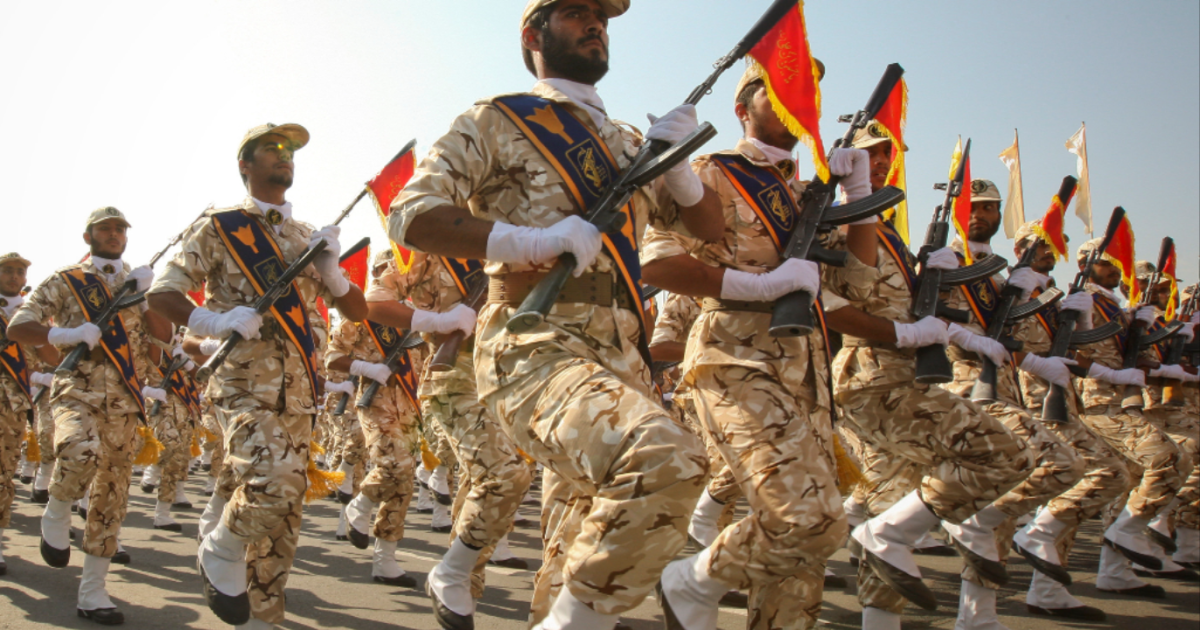Since the resumption of the Vienna nuclear negotiations last November, Iran has adhered to the need to reach a good and strong agreement that preserves its national interests and does not cross its red lines, including the lifting of US sanctions, especially on the Iranian Revolutionary Guard.
Iranian Foreign Minister Hossein Amir Abdollahian described Washington's removal of the Revolutionary Guards from the list of foreign terrorist organizations as a major demand for his country in the Vienna negotiations, making the Iranian condition a major obstacle to reviving the nuclear agreement.
In this context, the US envoy to Iran, Robert Malley, said at the Doha Forum that the Revolutionary Guards will remain within the sanctions, and this is an issue not related to the nuclear agreement.
And Abdullahian revealed, yesterday, Saturday, in a statement to Iranian television, that the leadership of the Revolutionary Guards had informed him of setting aside the issue of sanctions imposed on the military establishment in the event that insisting on them was a reason to torpedo the Vienna negotiations.
"We demand the lifting of sanctions on the Revolutionary Guard, despite the position of its leaders, which they informed us of," Abdullahian added, stressing that the Revolutionary Guard is a major party in Iran's security and defense strategy.
Former US President Donald Trump announced on April 8, 2019 that the United States had designated the Iranian Revolutionary Guard a foreign terrorist organization, while the Iranian National Security Council responded by designating US forces in the region on terrorist lists.
Despite reports that the United States is studying meeting Iranian demands, the American anger over the presence of Revolutionary Guards elements at the Doha Naval Defense Exhibition recently dashed hopes that were held on the imminence of reaching a consensus in Vienna.
Banish the specter of war
Perhaps the main reason behind the Iranian insistence on removing the name of the Revolutionary Guards from the list of foreign terrorist organizations is to remove the specter of war from the country, according to the researcher in international affairs Saeed Shawardi, who sees the designation of the Revolutionary Guards as a terrorist organization as a prelude to legitimizing a possible attack against Iran.
Speaking to Al-Jazeera Net, Shawardi accused the United States of working to undermine the Iranian armed forces and eliminate the Revolutionary Guards for opposing US plans in the region, he said.
On the reason for his country's insistence on lifting the sanctions on the Revolutionary Guards, despite declaring more than once that the sanctions have no effect on it, Shawardi said that this military and security institution possesses money and technology and enjoys popularity and influence inside and outside Iran, and this advantage cannot be neglected to ward off danger from the country.
The effect of sanctions
He attributed the reason for Washington's study to remove the Revolutionary Guard from the list of terrorist organizations, to the conviction of the American leadership that it is impossible to eliminate this institution through a military attack similar to the attack on the Taliban movement in Afghanistan in 2001.
He stressed that the United States is under pressure from its allies, especially the Zionist entity, to keep the Revolutionary Guards on the terrorist list as a pretext to restore sanctions on Iran due to the influence of the Revolutionary Guards' Quds Force in some countries in the region.
Shawardi believes that the US sanctions on the Revolutionary Guards are relatively influential in limiting its economic dealings inside and outside Iran, adding that maintaining the sanctions will hinder the Revolutionary Guards from obtaining specific weapons such as the Russian "S-400" system or other advanced military equipment from China, as it will hinder IRGC exports of advanced drones and other weapons abroad.
He concluded that the United States and its allies want to keep the door open to re-sanctioning the Iranian government, under the pretext of its support for the Revolutionary Guards' activities abroad as destabilizing the region, in addition to putting pressure on the resistance movements allied with Iran, such as the Lebanese Hezbollah and the two Islamic resistance movements (Hamas) and Islamic Jihad in Iraq. Gaza and the Houthi group in Yemen and other movements in Iraq.
Messages exchanged
For his part, the Director of the Arab Center for Iranian Studies, Muhammad Salih Sedqian, revealed that the US side agreed to remove the name of the Revolutionary Guards from the list of terrorism, provided that the Quds Force contributes to reducing tension in the region.
Speaking to Al-Jazeera Net, Sedqian added that Iran responded to American messages it received through mediators, that it is ready to cooperate in de-escalation in the region, and presented a vision and initiative to form a security system with the participation of the countries of the region without foreign interference.
He pointed out that Tehran considers the lifting of all sanctions on Iranian institutions, including the Revolutionary Guards, a prerequisite for reviving the nuclear agreement, and he expected a breakthrough after the visit of the European Union Coordinator on the nuclear talks, Enrique Mora, to Tehran and his meeting with the Iranian Foreign Minister and his deputy chief Iranian negotiator Ali Bagheri Kani. .
And the Iranian Foreign Ministry announced, in a statement, that the chief Iranian negotiator, Ali Bagheri Kani, stressed during his meeting with Mora that an agreement can be reached if the American side is realistic.

